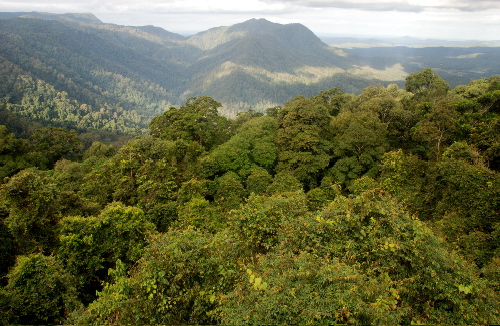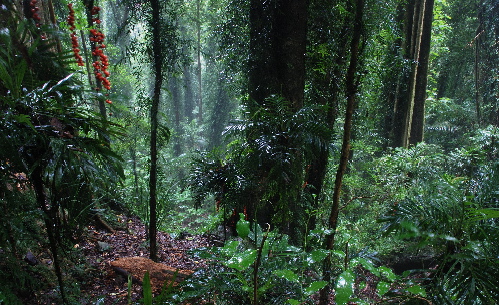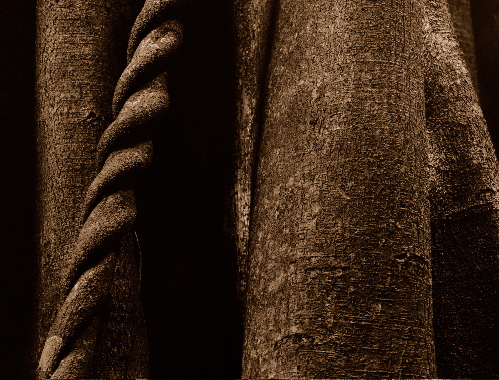I’m sitting in a cafe in Bellingen, a small country town on the Belliger River in north-east N.S.W. This morning I paddled a kayake with my friend James up the Belliger River, and as I did so I remembered Peter Carey’s novel Oscar and Lucinda, the final scenes of which are set on this river. Oscar is taking a church made of glass up the river on a barge to Bellingen. The year is around 1880, and the town he is trying to take this church to is one of the first pioneering town’s outside Sydney. Oscar is an idealist and a dreamer and the impracticality of these attributes in the Australian wilderness is represented by the heat pounding down upon him as he sits inside the now cracking glass house by himself. As the barge moves up the river Carey talks of how the white colonists saw only looming trees and failed to percieve that the land about them was thick with stories and myths, belonging to the Aboriginal culture. This morning as I pushed my way up the river with my paddle I didn’t even see banks thick with trees: in 2007 the banks of this river are mainly cleared for cattle. Oscar dies in this place, and this great Australian novel ends with a fatalistic view of white settlement on this continent. But throughout the final pages of the novel, and the final scenes of the film of the same name, I think the beauty of this part of the central east coast of Australia comes through.
This is Dorrigo National Park, just up the hill from where I sit and write this in Bellingen.
The subtropical rainforest, beneath the canopy. The central east coast rainforest reserves of Australia are the largest areas of subtropical rainforest on earth.
The humidity in the forest is very high, and the air is cool as we’re at about 800 metres.
I can say that my time in these hills was happier than Oscar’s.



